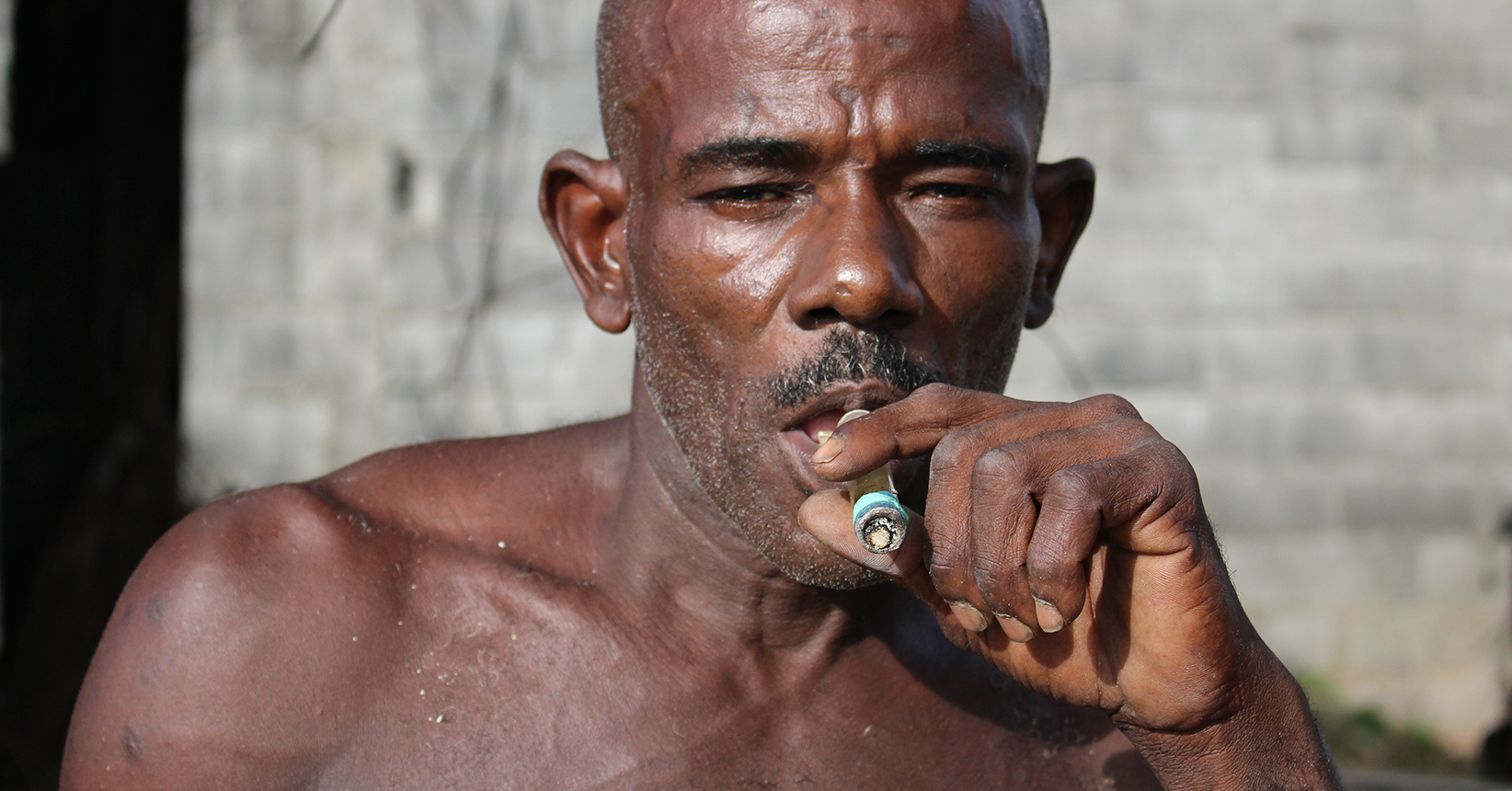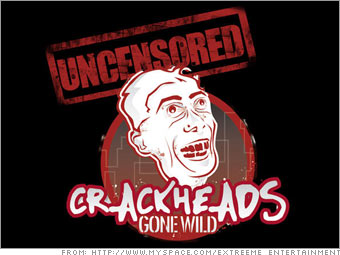When a phrase like "crackheads Oceanside" surfaces, it usually points to more than just a few words strung together; it often signals a deep conversation about the fabric of a community, the people who call it home, and the challenges they face together. It's a way people talk about things that feel difficult, sometimes things that make folks uncomfortable, or perhaps even a little scared. Yet, underneath any label or quick description, there are always human stories, situations that have grown complicated, and a collective need for connection and safety. This kind of talk, you know, it’s almost a call for us to pause, to look a little closer at what’s really going on, and to consider how we might respond with care and a sense of shared responsibility.
This particular way of speaking, "crackheads Oceanside," it brings up images, doesn't it? Perhaps of struggles on the streets, or maybe of moments that feel out of place in a town known for its coastline and laid-back vibe. But, really, what it hints at is the presence of individuals who are struggling with very difficult circumstances, people who are perhaps caught in the grip of serious problems. It’s a shorthand, in a way, for a broader set of issues that can affect any community, anywhere. And, that, is that, when we hear such things, it’s a chance to think about the people involved, to try and look beyond the surface, and to remember that every person has a background, a path that led them to where they are.
So, this conversation, it's not just about a specific spot or a particular group; it’s about how we, as a community, choose to see and respond to the less comfortable aspects of our shared existence. It's about how we talk about those who are experiencing hardship, and what steps we might consider taking to foster an environment where everyone feels a bit more secure and supported. This isn't about pointing fingers or laying blame; instead, it's about opening up a space for thought, for understanding, and perhaps, for finding ways to help our community thrive, even when things get a little tough. We, like your neighbors, are all part of this place.
Table of Contents
- What Does "Crackheads Oceanside" Mean for Our Community?
- How Do We Approach the Challenges in Oceanside?
- Understanding the Human Element Behind "Crackheads Oceanside"
- What Can Individuals Do to Help in Oceanside?
- Building a More Supportive Oceanside - A Shared Vision
- Are There Resources for Those Affected in Oceanside?
- Protecting Our Shared Space - Thoughts on "Crackheads Oceanside"
- Moving Forward - Hope for Oceanside
What Does "Crackheads Oceanside" Mean for Our Community?
When people use a phrase like "crackheads Oceanside," it often brings to light a certain uneasiness or worry about the social landscape of a place. It's a way of expressing concern, perhaps, about visible signs of distress or difficulty within the public areas of a town. This sort of talk, it typically points to a deeper set of issues that a community might be grappling with, such as homelessness, substance use, or mental health struggles that are perhaps not getting the attention they need. It’s a very raw and unfiltered way of describing what some residents might perceive as a disruption to the peace or a challenge to the sense of order they expect in their surroundings. And, you know, it’s a reflection of how people feel about their environment, the safety of their streets, and the general well-being of their neighbors.
The impact of such a phrase, "crackheads Oceanside," goes beyond just words; it can shape perceptions, both for those living in the area and for anyone looking in from the outside. It can, quite frankly, color how people view the entire community, potentially overshadowing the many good things that exist there. This kind of labeling, it often creates a barrier, making it harder to see the individuals involved as people who might be in a lot of pain or who need a helping hand. It tends to simplify very complicated human situations into something that feels easy to dismiss or to be afraid of. Basically, it’s a shorthand that can unfortunately obscure the real, human stories that are often behind such visible struggles, and that's something we might want to think about.
Moreover, using such strong language, it can affect the community's overall spirit. It can lead to feelings of frustration, a sense of helplessness, or even a desire to just look away from the problem rather than trying to understand it. However, it also serves as a very clear signal that there are needs that aren't being met, and that there are individuals who are, quite literally, struggling in plain sight. It’s a call, in some respects, for us to consider what kind of community we want to be, and how we want to address the challenges that are right there in front of us. Because, really, every community has its ups and downs, its bright spots and its areas of concern, and how we talk about them, and what we do about them, actually matters quite a bit.
How Do We Approach the Challenges in Oceanside?
When we think about the challenges that come to mind with phrases like "crackheads Oceanside," it's clear that a simple, quick fix just isn't in the cards. Tackling these sorts of community issues, it really asks for a thoughtful, step-by-step approach that looks at the big picture. We're talking about finding ways to support people who are struggling with very deep-seated problems, and at the same time, making sure that everyone in the community feels safe and cared for. It means looking at things like access to help for those dealing with substance use, making sure there are places for people to find shelter, and creating opportunities for folks to get back on their feet. In other words, it's about building bridges, not walls, and focusing on solutions that can truly make a difference for individuals and for the wider community.
One way to approach this is by fostering a sense of shared responsibility among residents, local groups, and city leaders. It’s about recognizing that these aren't problems that belong to just one group of people; they affect us all, in some way or another. So, it might involve supporting local outreach efforts, perhaps helping to create programs that offer a helping hand to those who are unhoused or struggling with addiction. It could also mean having conversations within our own circles about how we can be more understanding and less judgmental. You know, it’s about moving from a place of fear or frustration to one of proactive engagement, where we collectively seek ways to make our community a better place for absolutely everyone.
Furthermore, a solid approach often involves looking at the root causes of these visible struggles. Why are some people finding themselves in such difficult situations? What kind of support systems are missing? Answering these questions, even in a general sense, can help guide our efforts toward more effective and lasting solutions. It’s about more than just managing the visible aspects of the problem; it’s about trying to prevent them from happening in the first place, or at least reducing their impact significantly. This might involve advocating for better resources, supporting local initiatives that focus on prevention, or simply being a more compassionate presence in our daily lives. Basically, it's about working together to weave a stronger, more supportive social fabric for all of Oceanside.
Understanding the Human Element Behind "Crackheads Oceanside"
When we hear a phrase like "crackheads Oceanside," it's incredibly easy for our minds to jump to a label, to a quick categorization that might make us feel a certain way. But, really, if we pause for a moment, we can remember that behind every label, there's a person, a human being with a life story, feelings, and experiences that are probably very complicated. Addiction, for instance, is not simply a choice someone makes; it’s often a very complex condition, influenced by a whole host of things like past trauma, mental health issues, economic hardship, or even just a series of unfortunate events that led someone down a difficult path. To be honest, it’s a struggle that can grip anyone, regardless of their background or where they come from.
Thinking about the individuals behind the phrase "crackheads Oceanside" means trying to see beyond the immediate appearance or behavior. It means recognizing that these are people who might be suffering immensely, perhaps feeling isolated, hopeless, or completely overwhelmed by their circumstances. They are someone's child, perhaps a parent, a sibling, or a friend, and they are living with challenges that many of us can only try to imagine. This perspective, you know, it doesn't excuse any problematic behaviors, but it does invite a sense of empathy, a willingness to look at the situation with a little more compassion and a lot less judgment. It helps us remember that we are all, at our core, human, and capable of both struggle and resilience.
Moreover, understanding the human element also involves acknowledging that recovery is possible, even for those who seem to be in the deepest parts of their struggle. It’s a long and difficult road, to be sure, and it requires a lot of support, understanding, and resources. But, honestly, when we shift our focus from just the label to the person, we open up the possibility for meaningful change, for helping someone find their way back to a more stable and fulfilling life. It’s about seeing the potential for healing and growth, even in the midst of very tough situations. Basically, it’s a reminder that every person deserves dignity and the chance to improve their situation, and that's a pretty important thought to hold onto.
What Can Individuals Do to Help in Oceanside?
When you hear about issues that might be described by a phrase like "crackheads Oceanside," it's natural to wonder what, if anything, an ordinary person can do to make a positive impact. Well, it turns out there are actually quite a few things, even small ones, that can collectively add up to a big difference. One of the most powerful things any of us can do is simply to approach situations with a little more kindness and a lot less judgment. This means, for instance, treating everyone you encounter with respect, regardless of their circumstances or how they might appear. A simple nod, a brief moment of eye contact, or even just a polite "hello" can go a surprisingly long way in acknowledging someone's presence and their humanity.
Beyond that, you might consider supporting local organizations that are already working on the ground to help those who are struggling. These groups, they often provide essential services like food, shelter, mental health support, or pathways to recovery. Whether it’s through volunteering a bit of your time, making a small donation, or simply helping to spread the word about their efforts, your contribution can truly bolster their ability to reach more people in need. It's about recognizing that we don't have to solve everything ourselves, but we can certainly lend a hand to those who are dedicated to doing that important work. In fact, it’s a very practical way to channel any concerns you might have into something constructive.
Another very practical step is to educate yourself a little more about the underlying causes of addiction and homelessness. Understanding these complex issues can help to break down some of the stereotypes and misconceptions that often surround them. This knowledge can also empower you to speak about these topics with more clarity and compassion, perhaps even influencing how others in your own circle think and talk about them. You know, it’s about becoming a more informed and empathetic member of the community, someone who understands that real solutions come from a place of knowledge and genuine care. So, it's not just about doing, but also about learning and growing in our understanding of these very human challenges.
Building a More Supportive Oceanside - A Shared Vision
Creating a truly supportive community, one where the challenges hinted at by a phrase like "crackheads Oceanside" are addressed with care and collective effort, really calls for a shared vision. It’s about imagining an Oceanside where everyone, regardless of their current struggles, feels a sense of belonging and has access to the help they need to live a stable life. This isn't something that happens overnight, of course; it’s a process that involves many different parts of the community working together, from residents and local businesses to community groups and city services. It means fostering an environment where empathy is a guiding principle, and where we actively seek to lift up those who are down, rather than just pushing problems out of sight.
A big part of this shared vision involves open conversations, even about uncomfortable topics. It means being willing to talk about the realities of addiction, homelessness, and mental health in a way that is honest but also hopeful. When we can discuss these issues without shame or fear, we create a space for real solutions to emerge. This might involve community meetings, local forums, or simply more conversations among neighbors about what kind of place we want Oceanside to be for everyone. It’s about building connections, strengthening relationships, and recognizing that our collective well-being is tied to the well-being of every single person who lives here. You know, it’s about understanding that we are all, in a way, in this together.
Ultimately, building a more supportive Oceanside means investing in long-term solutions that address the root causes of hardship. This could involve advocating for better funding for social services, supporting housing initiatives, or promoting educational programs that help prevent substance use before it starts. It’s about creating pathways to recovery and stability, ensuring that when someone is ready to seek help, that help is readily available and accessible. This vision is about more than just reacting to problems; it’s about proactively building a community that is resilient, compassionate, and truly cares for all its members. Pretty much, it's about shaping a future where the phrase "crackheads Oceanside" becomes less about a current struggle and more about a challenge that the community has thoughtfully and effectively addressed.
Are There Resources for Those Affected in Oceanside?
When we talk about the difficulties that might bring up a phrase like "crackheads Oceanside," it's natural to wonder if there are places where people can go for help, or if there are resources available to those who are really struggling. And, thankfully, even though the challenges can feel immense, there are typically various forms of support within or near most communities. These often include places that offer assistance with substance use, such as counseling services, rehabilitation programs, or support groups where people can share their experiences and find encouragement. These kinds of places are usually set up to provide a safe space and professional guidance for individuals who are trying to make a change in their lives.
Beyond direct support for substance use, there are also often resources aimed at addressing related issues like homelessness or mental health concerns. This might mean shelters that offer a temporary place to stay, food assistance programs that help ensure people have enough to eat, or mental health services that provide therapy and psychiatric care. Many communities also have outreach teams whose job it is to connect with individuals on the streets, building trust and helping to guide them toward available services. These teams play a very crucial role in reaching those who might otherwise fall through the cracks, so to speak. You know, it’s about making sure that there are avenues for people to find a little bit of stability and care.
Finding these resources can sometimes be a bit of a challenge, especially for someone who is already in a difficult situation. However, many communities have centralized information points, like local government websites, community centers, or non-profit organizations that can help direct people to the right place. These resources are there because people recognize that individuals need support to overcome significant hurdles. So, while the phrase "crackheads Oceanside" might highlight a problem, it’s also important to remember that there are often compassionate efforts and dedicated services working to help those affected find a path toward healing and a better future. Basically, it’s a matter of knowing where to look and connecting people with the help that's already out there.



